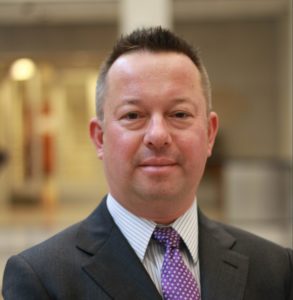Discovery points toward new treatment approach

As described in a study published in the journal Neuron, Northwestern Medicine scientists have discovered why a specific genetic mutation causes intellectual disability and autism spectrum disorder in children.
“We have solved an important piece of the puzzle in understanding how this mutation causes intellectual disabilities and mental illness,” said lead author Peter Penzes, PhD, director of the new Center for Autism and Neurodevelopment and the Ruth and Evelyn Dunbar Professor of Psychiatry and Behavioral Sciences and of Physiology.
The Northwestern scientists discovered that genetic mutations in human patients in a gene called Usp9x result in the brain growing fewer synapses. That’s because Usp9x protects another protein called ankyrin-G, whose role is to grow and stabilize synapses. The developing brain needs to build lots of synapses between neurons so cells can communicate while the brain grows, and to learn.
But when Usp9x is mutated, it can’t stabilize the synapse-enhancing ankyrin-G. Thus, the would-be enhancer protein degrades and destabilizes, resulting in fewer synapses in the brain, scientists found. Individuals with this mutation have developmental delay, difficulty learning, increased anxiety and hyperactivity.
In addition to ankyrin-G, Usp9x also protects several other important synapse-enhancing proteins, which when mutated also cause intellectual disability and autism. Usp9x is a master-stabilizer of many key proteins essential for brain development and learning.
It is notable that severe mutations in ankyrin-G are also known to cause intellectual disability and autism. Or, if a person inherits a less severe form of the mutation in ankyrin-G, their synapses develop relatively normally in childhood. But during adolescence – when there is a big turnover of synapses as the brain matures – more of these vital neuron connectors are lost than normal. The result can be schizophrenia and bipolar disease.
A possible cancer drug connection
Interestingly, Usp9x and related proteins are also involved in cancer and have been of interest to the pharmaceutical industry. Hence, some candidates from the cancer drug development process could potentially be used to target Usp9x to treat some forms of intellectual disability, autism, schizophrenia and bipolar disorder.
About the Center for Autism and Neurodevelopment at Northwestern
The center’s mission is to spur interdisciplinary research collaborations aimed at understanding the biological bases of autism and related neurodevelopmental disorders and to facilitate the translation of this knowledge into new treatments.
Autism is a highly prevalent neurodevelopmental disorder. According to the Centers for Disease Control and Prevention, one in 68 children are identified as having Autism Spectrum Disorder.
“Over the past few years, many genetic causes of autism and related disorders have been found, which could provide insight into its neurobiological bases,” Penzes said. “The next major challenge is to understand the function of these genes in shaping the development of brain circuits and how their improper function may derail neurodevelopment. These genes and neurodevelopmental processes could serve as targets for new drugs aimed at treating autism and related disorders.”
Other Northwestern authors are Sehyoun Yoon, PhD, Euan Parnell, PhD, and Marc Forrest, PhD.
The research was supported by grant R01MH107182 from the National Institute of Mental Health of the National Institutes of Health.






